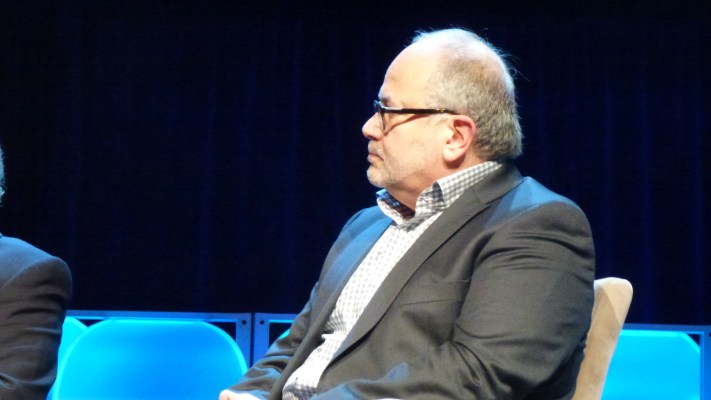Disney made a splash last year when it acquired Maker Studios for at least $500 million to expand its position in online video, and its acquisition march is not done. It next target is likely to be something to further the company’s distribution across digital networks, according to one executive at the company.
“I don’t want to be predictive about our next acquisition but I will say we feel pretty good about the content we have, which includes the Star Wars Universe and Disney itself,” said Jay Rasulo, the senior EVP and CFO of the Walt Disney Company, speaking on the Medialink keynote panel at CES in Las Vegas today. “[But] I think distribution is an area wouldn’t be surprised to see us do something more.”
Speaking to TC directly after the panel, Rasulo said that a social media startup would definitely count as distribution, but he declined to say anything about whether that acquisition might be BuzzFeed. Last year, there were reports that Disney was looking to buy the company. But BuzzFeed wanted $1 billion, the story goes, and so the deal fell apart.
He elaborated a bit more on how Maker was a good pick because it fell into two priority groups for Disney.
“Our acquisition strategy has been pretty clear,” he told TC. “We are looking for one of two things. Intellectual property that we can distribute through the Disney ecosystem which today is theme parks, theatrical, TV, cruise ships etc. Or something that can use to extend that network. Maker is a perfect example of that. They are a content creation vehicle… Maker Studios have clearly established themselves as a shortform creation studio. But they are also masters of distribution. It was a twofer for us.” (A description that you could equally apply to BuzzFeed, in fact.)
Another area to consider is whether Disney would acquire a distribution network. Today, the company is fairly reliant on third parties to reach audiences — YouTube for Maker, but also cinemas and that ecosystem for films; broadcasters for TV content; and so on. Rasulo points out that Maker does have Maker TV, which is a start.
“Every company wants more direct relationships with consumers,” he said. “They want to own the data.”
The comments from Rasulo and others speaking on the panel underscore just how much media companies are shifting to try to think of themselves more as tech companies today — not a new concept but one that seems to be becoming ever more consuming.
“We are a media company but we are sucking up technology like you would never believe,” said Bob Sauerberg, president of publishers Conde Nast. “Today, tech gives us the ability to figure out what people like and add some science to it. Tech is the biggest growth area in Conde Nast right now. We are building a place where tech can thrive.”
Back in 2006, Conde Nast acquired Reddit, Sauerberg says, because “we saw a cool way of sharing and uploading content and a couple of kids with passion.” It wasn’t an investment that Conde Nast tried to integrate with the rest of its publishing business.
“We let it operate independently and fed it with a little money. We shared some branding DNA,” he recalls. Over time Reddit picked up speed and now has over 70 million active users and 5 billion pageviews each month. But buying a tech company doesn’t always mean that its media owner knows how best to grow it. Sauerberg says that the decision to spin Reddit out in 2011 as an independent company was done “so that it could compete with other social media companies. The future is bright.”
These days, Conde Nast has shifted from a focus on digital publishing investments to straight out digital businesses, with an accent on e-commerce and luxury goods to complement its publisher focus on high-end and premium advertisers catering to affluent readers. That’s included investments in companies like Farfetch and Moda Operandi and ReneSim.
